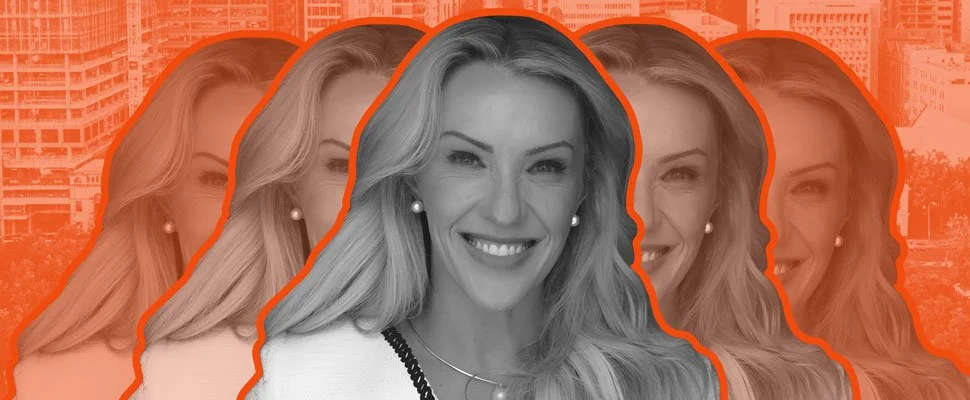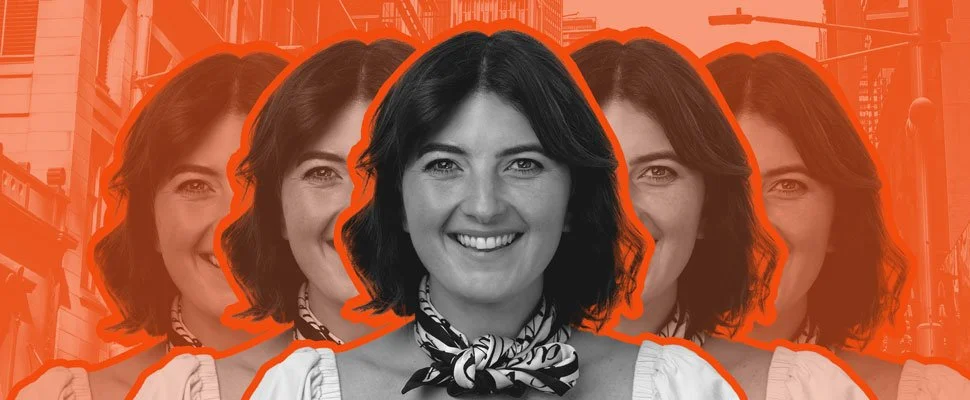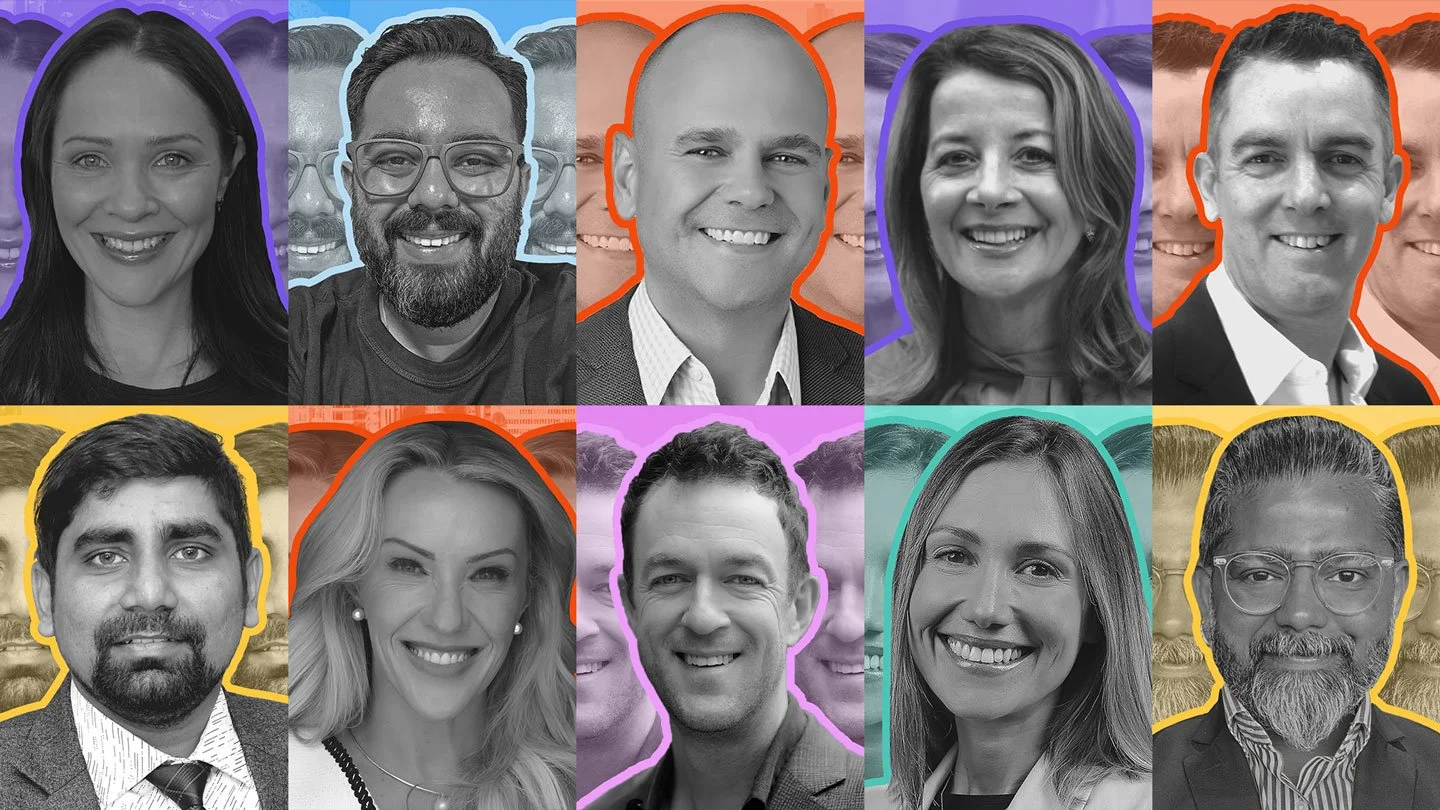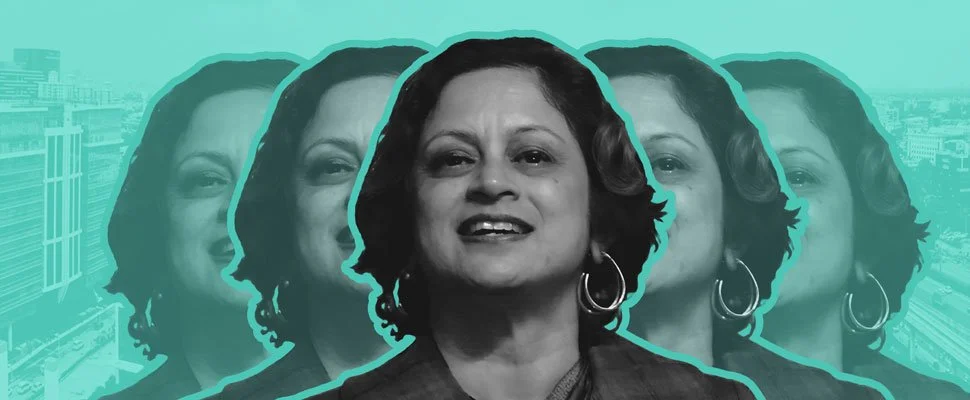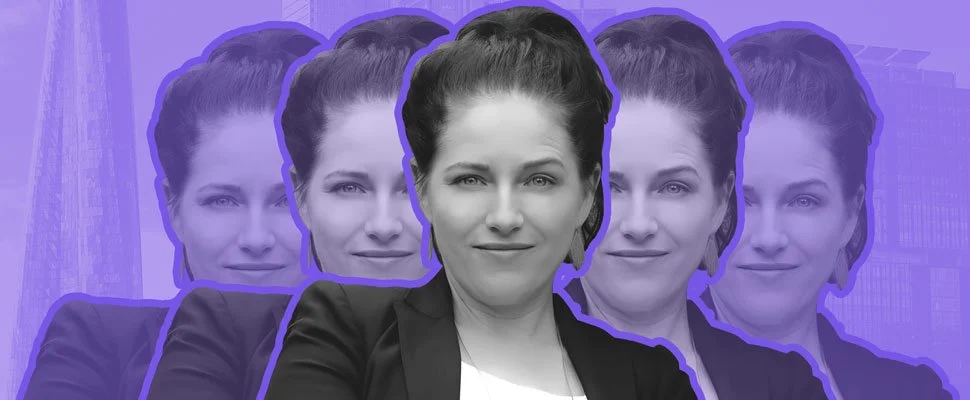Human on the Inside with Amy Gildea
Human on the Inside. We’re big believers in the power of human skills. But don’t just take our word for it - the evidence for excellence powered by human (‘soft’) skills is everywhere! In this engaging, ever-enlightening series, we speak with industry leaders, innovators and game-changers to learn a little about their personal career journeys, and how human-led strategies, philosophies and cultures are proving a force for good in their working worlds …
Maxme: Welcome Amy, and thanks for stepping into the #SuccessIsHuman Spotlight!
You’ve just finished up as Managing Director Indo Pacific, Tetra Tech International Development, empowering local communities and improving livelihoods through innovative and sustainable solutions for global development. Tetra Tech leads with an integrated approach that is focused on building the capacity of communities and individuals to create strong, healthy, and resilient societies—from promoting peace, stability, and economic growth, to health and education, to improved natural resource management. Wow.
In 1 sentence (ok, we’ll give you 3), what does this role entail?
Amy Gildea: At its core, my role (which transcends organisations) is about being a kahu—a steward of people, place, and purpose. I guide relationships that honour aloha: the deep interrelationships, complexity, and cultural wisdom that shape thriving communities across the Indo-Pacific.
This is soul-level work—reframing humanitarianism and development not as “fixing”, but as creating the conditions for collective flourishing.
And yes, it’s also the day-to-day grind: managing multi-million dollar budgets, meeting deadlines, navigating multiple legal and regulatory frameworks, and holding space for a global team—while leading from a place of calm authority, relational and cultural intelligence, and sovereign power.
M: Whilst you were a leader at Tetra Tech for almost 10 years, your career is of course much deeper than this. As a company director, you’re committed to leading through crises and growing profit with purpose, but you started out as a registered nurse - first in Australia, and then working with Medecins Sans Frontieres across Gaza, the DRC, Haiti & Sierra Leone. From here you transitioned into project management and became a Stabilisation Advisor (Health) with The Australian Civilian Corps before moving into various KPMG director roles across health, climate change and human rights.
How does all this work speak to your personal purpose and what drives you as an individual?
AG: I was born for this work. I was born in Thailand, raised in Myanmar, and grew up speaking a smattering of Burmese as part of our family vernacular. Those early years immersed in different cultures, languages, and ways of knowing formed the foundation of everything I believe in. My mother was a nurse. My father, a development engineer. It’s been braided into the story of my life somewhere between their blueprints — one foot in the practical, the other in the compassionate.
By the age of 15, I knew I wanted to work in humanitarianism and international development. Every decision since has been a stepping stone: going on a student exchange and learning French at 16, studying nursing so I could work with Médecins Sans Frontières (and use my French), navigating life-changing personal transitions, raising children, showing up through heartbreak and reinvention—but always in pursuit of that North Star.
My compass has always been strong. That sense of purpose and discipline is what drives me. The thrill of learning, the kaleidoscope of life’s experience—all of it has come together to shape a deeply human and holistic leadership style. Nursing taught me how to care, how to sit with suffering, how to let go when death comes and it’s time. Consulting taught me rigour, hard-edged commerciality, strategy, and how to think in systems. And development work, especially in the Indo-Pacific, has revealed the most profound wisdom—in community, in culture, in prayer and in aloha.
This work isn’t just what I do. It’s who I am. I lead to give voice and power back to those who’ve always held it yet relegated to the margins or footnotes of our colonial history, to create space for self-determined futures. It’s soul work. And I’m endlessly grateful to be curating this path.
M: Tell us a little about your personal education pathway/s - what led you to where you are now? How closely do your formal qualifications match your current career?
AG: My education has been both formal and lived. I began with a Bachelor of Nursing and a Postgraduate Diploma in Tropical Medicine, because at 15 I knew I wanted to work with Médecins Sans Frontières. Those qualifications took me into Gaza, Haiti, Sierra Leone, and the Congo, where my French and nursing came together in the crucible of humanitarian work. Later, I completed a Masters in Health Management and postgraduate studies in Evaluation, to sharpen the systems thinking and strategic leadership required for large-scale reform and governance. Yet it was the Pasifika Whole-of-Life Philosophies course at the Pacific Theological College (now a University) last year that became the singular, most transformative learning of my life— it reframed my leadership around relational intelligence, kinship, and aloha.
Do my qualifications match my current career? Yes and no. They were stepping stones, but the real learning has come through holding suffering and joy, navigating crises, rebuilding organisations, and stewarding billion-dollar portfolios with cultural humility. What unites it all—whether in a hospital ward, a refugee camp, or a boardroom—is a commitment to service and sovereignty, to systems that honour dignity, and to creating the conditions where communities can flourish on their own terms.
M: If you could share one piece of career advice to your 21 year old self it would be ...
AG: Always stand in your truth, even when it shakes the room. Speak with clarity and courage, grounded in your values, because leadership is not about making people comfortable—it is about changing systems from outside and within. You will make others uneasy, sometimes even angry, but that discomfort is the tremor of transformation. Hold steady. Anchor yourself in purpose. The work of re-architecting power—of creating sovereign, dignified, and just futures—demands nothing less.
M: Maximising the potential of individuals, communities and businesses through the power of human skills is the reason Maxme exists. Can you tell us a little about the role and / or value of human skills in your workplace right now?
AG: At the heart of everything we do is relationship—because we are relational beings, serving people, communities, and the planet. Human skills—relational, cultural, and emotional intelligence—are not “soft” skills; they are the hardest and most essential skills of all. They enable us to navigate complexity (including complex spreadsheets and finances!), to listen deeply, and to act with both courage and humility.
I’ve been inspired by the work of Dan George ((1) Dan George | LinkedIn) and his concept of two-eyed seeing—the capacity to hold multiple perspectives at once. This profoundly human ability is what allows us to bridge worldviews, to maintain our humanity in the face of pressure, and to design systems that are inclusive, resilient, and just. Without human skills, there is no sustainable leadership—only transactions. With them, transformation becomes possible.
M: Self Awareness sets the critical foundation for all Maxme learning experiences. With that said … what’s your strongest trait / personal super power?
AG: I see the connections others miss—the invisible threads that link people, ideas, and systems. It means I’m often two or three years ahead, sensing shifts before they surface, and moving toward opportunities others have yet to imagine. This ability to see beyond the obvious isn’t just foresight—it’s a way of architecting futures, shaping pathways where others only see obstacles.
M: And on the flip side, what’s one human / ‘soft’ skill you’ve had to really work on improving over the course of your career?
AG: Unlearning the instinct to please. Like many women, I was conditioned to smooth edges, to make others comfortable—even at the expense of my own truth. Over the years, I’ve had to be intentional about building assertiveness and boundaries, learning that leadership isn’t about service at any cost, but about sovereignty: standing in your values, holding your ground, and leading with integrity even when it unsettles others. This shift—from service-based leadership to sovereign-based leadership—has been one of my most important growth journeys, and one I believe is especially critical for women.
Sovereign leadership, as I hold it, is the practice of stewarding power with dignity and accountability - rooted in culture, community and future generations - where true authority is measured not by control, but by the ability to enlarge the mana (dignity, power and spirit) of the collective. It’s not a title but a practice.
M: If you could share one piece of career advice with recent Uni graduates or candidates keen to found their own start up, what would it be?
AG: Yes, financial literacy matters—but that part is easy to learn. The harder, more powerful work is cultivating self-awareness, humility, and emotional intelligence. Learn to understand your own emotions, your communication style, and how the way you show up shapes the people and systems around you. Ask and sit with feedback. Master that, and you can lead anywhere.
M: You’ve been granted approval to add one University graduate to your team, but have 100 applicants, all with outstanding academic results. How do you find your perfect candidate - what are you looking for?
AG: Academic excellence is only the starting line. What I’m really looking for is curiosity—an insatiable appetite to learn—and the discernment to know when to listen deeply and hold space, and when to speak up with courage. Skills can be taught, but the ability to stay humble, hungry, and attuned to others is what makes someone extraordinary.
M: In the words of John Dewey, “education is not preparation for life, education is life itself.”
What’s next on your #learning agenda?
AG: I’ve always believed languages are a gift. French has carried me through my early career, and I hold a little Arabic too—but my dream has always been to speak six languages. Wherever I travel, I want to dedicate more time to learning the local language, so I can read their stories if they are written, feel the culture, and glimpse society through the exquisite nuances that only language can reveal.
Amy Gildea
CEO
Amy Gildea is an internationally recognised leader transforming what power and leadership mean in the 21st century. Drawing on more than two decades at the frontlines of statecraft and diplomacy, humanitarian action, and international development, she has built a reputation as a strategist who not only manages complexity but reshapes the very systems others operate within.
As former Managing Director of Tetra Tech International Development, Amy led 560 staff across 33 countries and stewarded a billion-dollar portfolio through financial turnaround, organisational transformation, and sustainable growth. Her leadership has extended across multi-million-dollar health systems, government reform in digital health and regional security, and humanitarian responses in some of the world’s most fragile and climate-affected regions. She has helped put the shattered pieces together following some of the world’s cruellest genocides.
Amy is best known for her ability to hold the tension between purpose and profit — proving that values and commercial success can co-exist as engines of transformation. Her work is grounded in Indo-Pacific and First Nations wisdom, where sovereignty, resilience, and humanity are seen as the true measures of strength.
Ready to develop the human skills within your organisation, team or self? Explore our menu of Maxme Products & Programs or simply download the Hodie app to get started today.
Prefer to talk through your options? Simply contact us at any time.

